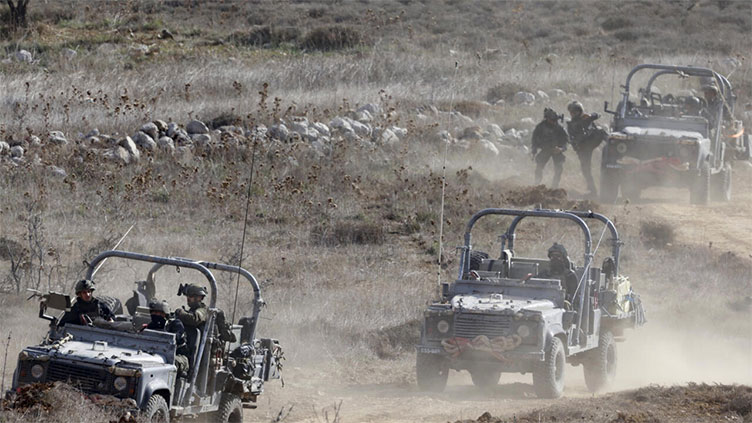Israel orders troops to 'prepare to remain' in Syria buffer zone through winter

World
Since Assad's fall, the Israeli military has also launched strikes against Syrian military sites.
JERUSALEM (AFP) – Israeli Defence Minister Israel Katz has ordered the military to "prepare to remain" throughout the winter in the UN-patrolled buffer zone that is supposed to separate Israeli and Syrian forces on the Golan Heights.
Israel seized the demilitarised zone on the strategic plateau on Sunday, just hours after Syrian rebels swept president Bashar al-Assad from power.
The move drew international condemnation including from the United Nations, although close ally the United States on Thursday said it was consistent with Israel's right to self-defence.
The peacekeeping force UNDOF said in a statement on Friday it had informed Israel it was in "violation of the 1974 disengagement agreement", referring to the armistice between Syria and Israel that created the buffer zone.
Since Assad's fall, the Israeli military has also launched hundreds of strikes against Syrian military sites, targeting everything from chemical weapons stores to air defences to prevent them from falling into rebel hands.
The deployment in the buffer zone comes with Israeli forces still withdrawing from southern Lebanon after fighting Hezbollah militants for months and with the war in Gaza against Palestinian militants ongoing.
"Due to the situation in Syria, it is of critical security importance to maintain our presence at the summit of Mount Hermon, and everything must be done to ensure the (army's) readiness on-site to enable the fighters to stay there despite the challenging weather conditions," Katz's spokesman said in a statement on Friday.
'VACUUM ON ISRAEL'S BORDER'
Israel has said it seized the buffer zone to defend itself.
Prime Minister Benjamin Netanyahu's office said on Thursday that the collapse of Assad's rule had created a "vacuum on Israel's border".
"This deployment is temporary until a force that is committed to the 1974 agreement can be established and security on our border can be guaranteed."
Israel captured most of the Golan Heights from Syria during the 1967 Arab-Israeli war.
It held onto the territory during the 1973 Arab-Israeli war and in 1981 annexed the area in a move since recognised only by the United States.
On Thursday, UN chief Antonio Guterres condemned Israel's seizure of the buffer zone.
Guterres "is deeply concerned by the recent and extensive violations of Syria's sovereignty and territorial integrity," his spokesman Stephane Dujarric said in a statement.
"The secretary-general is particularly concerned over the hundreds of Israeli air strikes on several locations in Syria."
Guterres urged the end of "all unauthorised presence in the area of separation and refraining from any action that would undermine the ceasefire and stability in Golan," Dujarric said.
UNDOF on Friday said its forces "remain at their positions" and "continue to carry out their mandated activities".
The Israeli military said that troops were conducting "defensive missions" in the buffer and beyond while also "strengthening" a barrier on the armistice line.
UNDOF said the Israeli army has been "constructing counter-mobility obstacles since July 2024".
'TEMPTATION TO STAY'
The United States has called for the Israeli incursion to be "temporary" although on Thursday National Security Adviser Jake Sullivan said the incursion was "logical and consistent with Israel's right to self-defence".
Michael Horowitz, an expert on regional geopolitics at the Middle East-based security consultancy Le Beck, said he expected Israeli forces to remain in the zone for several months carrying out "surveillance missions".
"The duration of the Israeli operation will depend on the stability and intention of the new Syrian regime," he told AFP.
Although Syria's new rulers have sent conciliatory messages internationally, Israel is not ready to take any risks, he said.
"There is also the specific question of Mount Hermon, a strategic point as it dominates three countries," Lebanon, Syria and Israel, Horowitz said.
"In the current chaos, and given the composition of the Israeli government, I believe the temptation will be very strong to stay on the Syrian side of Mount Hermon, even in the longer term."


